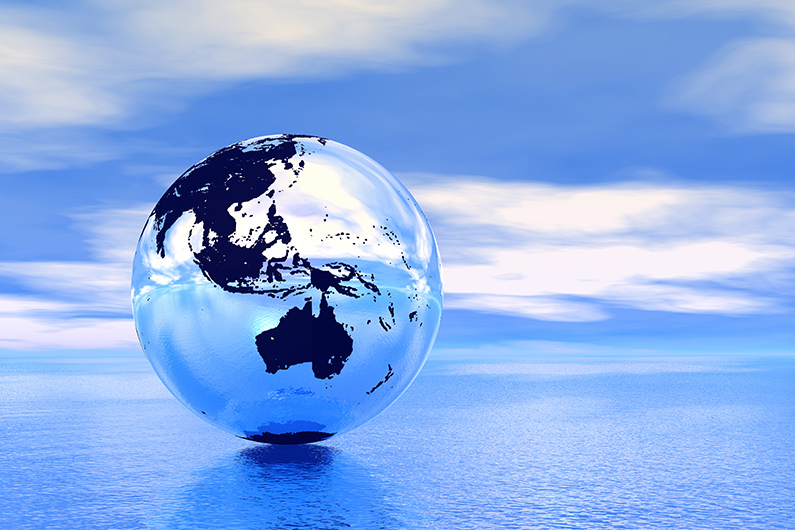More news
- View from the UK: Navigating chemical policy and sustainability
- Architectural coatings in Nepal and Bhutan
- Focus on adhesives: Unveiling unbreakable bonds – Testing redefines physical strengt...
- Focus on adhesives: Henkel and Covestro collaborate for sustainability of engineered wood ...
- Advances in construction chemical technology: What’s new in 2024?

Yogender Malik presents an overview of the automotive coatings industry in Pakistan for PPCJ
Pakistan is the second largest country in the South Asia region. With a population of 240 million, the country is a huge market for global and domestic paint & coating producers. The country’s economic situation during the past two decades has not been very conducive for the growth of paint and industry. However, being one of the most populated countries and with a low per capita consumption of paint and coating products, Pakistan is on the radar for most of the large paint manufacturing companies.
Overview of Pakistan’s automotive industry
During 2022-23 financial year (July 1, 2022- June 30, 2023), Pakistan’s automotive industry witnessed a massive slowdown in demand. The data released by the Pakistan Automotive Manufacturers Association (PAMA) shows that the total volume of vehicles sold across all segments in the fiscal year 2023 was 1.348 million units — a 37.7% decline from the fiscal year 2022, when 2.163 million units were sold.
Japanese automotive producers dominate the Pakistani automotive market in a major way. The top three car producers by volume are Suzuki Pakistan (formally known as Pak Suzuki Motor Company), Toyota Pakistan and Honda Atlas Cars Pakistan. Suzuki’s sales suffered the most during the last financial year, as its sales nosedived by 55% from 136,000 units in FY 2021-22 to 61,555 units in FY 2022-23. Toyota also faced a significant drop in sales by 58.3% from 74,533 units in FY 2022 to 33,104 units in FY 2023. Honda’s sales decreased by 22,000 or 57% from 35,197 units in FY 2021-22 to 16,879 units in FY 2022-23.
Sales of two wheelers and three wheelers saw a decline of 34.8% from 1.821 million units in FY 2022 to 1.187 million units in FY 2023. Atlas Honda is the market leader in the two wheeler segment, as it sold 1.005 million units in FY 2023 — down by 26.1% from 1.360 million units in FY 2022. Suzuki is the second largest player in the two wheeler segment.
READ MORE:
Automotive paint and coatings industry in Pakistan
Catered to by leading multinationals and rapidly emerging domestic automotive paint and coating producers such as Kansai, Nippon, Berger, Brighto, Buxly and Nelson, Pakistani automotive paint and coating industry has gone through boom and bust cycles during the past 10 years.
Japanese paint producers Kansai and Nippon dominate the country’s automotive coating market due to the leadership position enjoyed by Japanese automakers in Pakistan.
Pakistan’s automotive paints market in recent years has seen aggressive competition between multinational and domestic players. With local competitors starting to make aggressive forays into the two wheelers and refinish segments, MNC paint producers in the country have stepped up on aggressive product and pricing strategies.
The ongoing economic crisis in the country has an adverse impact on the consumption of automotive paint and coatings in Pakistan in a major way. The main culprit behind the demand slump in the automotive industry and, resultantly, in the automotive paint and coatings industry has been the rampant inflation and relentless upwards price revisions due to Pakistani Rupee’s (PKR) continuous depreciation against the US dollar. The impact of the ongoing economic crisis on automotive demand can be understood from the automotive lending segment. According to the data, auto-financing accounted for 44% of the total personal loans in August 2021. Two years later (in August 2023), the figure is 33%.
Going forward, consumption of automotive paint and coatings products in Pakistan are expected to register steady upside in the medium and long term. A new auto policy (2021 to 2026), which offers tax incentives to new automotive producers to establish production plants in the country, has resulted in Renault, Nissan, Proton Holdings, SsangYong, Volkswagen, Hyundai, Kia, and FAW expressing their interest to enter the Pakistani market.
| S. No | Company | Location | Operational since |
| 1 | Akzo Nobel | Lahore | 1950 |
| 2 | Berger Pakistan | Karachi and Lahore | 1950 |
| 3 | Kansai Pakistan | Lahore | 1952 |
| 4 | Nippon Paints | Lahore | 2007 |
| 5 | Jotun Pakistan | Lahore | 2005 |
| 6 | Brighto Paints | Lahore | 1973 |
| 7 | Krass Paints Industries | Faislabad | 1978 |
| 8 | Diamond Paint Industries | Lahore | 1982 |
| 9 | Mansoor Paint Industries | Lahore | 1983 |
| 10 | AMCO Paint Industries | Lahore | 1985 |
| 11 | Buxly Paint Industries | Lahore and Karachi | 1933 |
| 12 | United Paint Industries | Karachi | 1994 |
| 13 | Nelson Paint Industries | Karachi | 1995 |
| 14 | Chawla Chemical and Metal Industries | Lahore | 1980 |
| 15 | Brolac Paints | Lahore | 1995 |
| 16 | Allied Paint Industries ( Gobi Paints) | Lahore | 1981 |
| 17 | Sika Paint Industries | Lahore | 1988 |
| 18 | Rafiq Polymer Industries | Lahore | 2004 |
| 19 | Rainbow Paint Industries | Karachi | 1981 |
| 20 | Black Horse | Lahore | 1979 |
Table 1- Major paint & coating producers in Pakistan
READ MORE:
Kansai Paint Pakistan
Kansai Paint Pakistan with its modern, world class manufacturing facility in Lahore has a dominant share in Pakistan’s automotive paints business and is enjoying steady growth in decorative, refinish and industrial coating markets.
Catering to Pakistani automotive coating market since 1992, the company supplies automotive paints to Toyota, Suzuki, Nissan, Honda, Hino, Sigma, Hyundai, Yamaha and Baluchistan wheels. The company established its Lahore plant in 2008.
Kansai Pakistan claims that its Lahore plant is the first coating plant in the country which produces Cathode Electro Deposition (CED) coating products for the automotive sector based on full technology transfer and back-up support from parent company in Japan.
Nippon Paints Pakistan
Japanese paint major Nippon Paint marked its successful entry into the Pakistani market in 2007. The company has invested more than US$25M since the establishment of its first manufacturing facility near Lahore. Nippon Paint Pakistan started off with a total manufacturing capacity of 20Mlit/yr in District Kasur near Lahore in May 2010 over an area of 12.02 acres.
Berger
Operating in Pakistan since 1950, when it started importing paints and coatings from UK, Berger is among the leading automotive paint and coatings producers in the country. Berger established its first local manufacturing facility in Karachi in 1955. The company established its second manufacturing facility in Lahore in 2005. Berger offers a comprehensive range of quality paints in Pakistan from its state-of-the-art local manufacturing facilities and partnerships with leading international producers.







